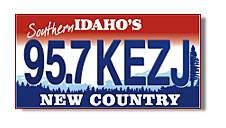
Are Idaho Handshake Agreements Legally Binding?
Idaho Handshake Agreements: Binding or Bust?
You decide to put in a fence between you and your neighbors, and luckily your neighbor agrees to pay for half the cost. But when it comes time to collect, your neighbor backs out, even though they agreed on the estimate and shook hands. Is there anything you can do to enforce the agreement or are the days of handshake agreements in Idaho long gone?
Handshake agreements, while traditional and based on mutual trust, can be legally binding under Idaho law as well as more broadly. However, the enforceability of these agreements, especially when it comes to verbal commitments, can be complicated by the need for proof and the nature of the agreement itself.
Understanding Verbal Contracts
A handshake agreement, also known as a verbal or oral contract, generally holds legal weight if it can be proven to exist and if it meets certain criteria that constitute a binding contract. These criteria include an offer, acceptance, consideration (something of value exchanged), and lawful purpose.
Written Requirements Under the Statute of Frauds
In Idaho, certain agreements must be in writing to be enforceable due to the Statute of Frauds. This includes contracts that cannot be performed within one year, promises to pay someone else's debt, agreements made in consideration of marriage, contracts for the sale of real property, and agreements to lend money over $50,000, among others.
Case Study: Building a Fence on Shared Property Scenario
In the scenario where you build a fence based on a verbal agreement with your neighbor who then refuses to pay, the enforceability of the handshake agreement could be questioned under the Statute of Frauds. Specifically, if the agreement could be considered a contract involving real property (the fence alters the property), it may need to be in writing to be enforceable.
Digital and Casual Agreements: Email and Text are Your Friends
In today’s digital age, casual agreements made via email, text, or social media can also be considered as evidence of a contract if they detail the terms agreed upon by the parties involved. This digital footprint can sometimes serve to substantiate the terms of a verbal agreement in the absence of a formal written contract.
CYA: Best Practices for Enforceability
To minimize disputes and increase the likelihood of enforcement, it is advisable to follow up any significant handshake agreement with a written confirmation that outlines the terms agreed upon. This doesn't need to be a formal contract but should include key details like the nature of the agreement, what is expected of each party, and any payment terms discussed. A prompted response from the other party accepting the terms is even better.
If a significant amount of money is on the line, consulting with a legal professional to draft a more formal agreement can also provide further security and clarity.
This approach ensures that all parties have a clear understanding of the agreement and provides a tangible record that can be referred to in case of misunderstandings or legal disputes.
9 Forbidden Foods That Are Banned in Idaho, Washington, Utah and California
Gallery Credit: Michelle Heart
More From 95.7 KEZJ









